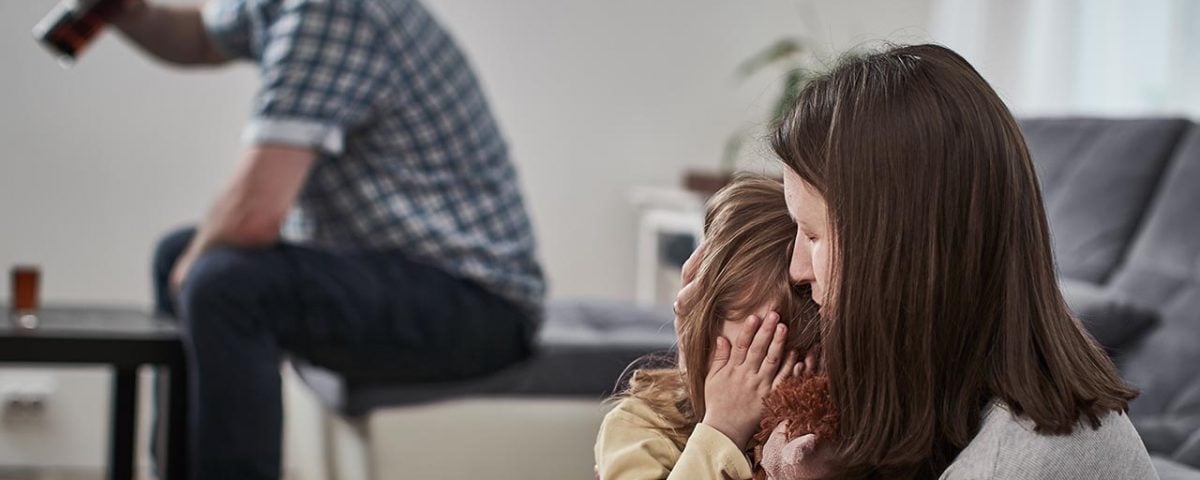Alcohol addiction is not a disease that impacts a single person in a vacuum.
Typically, those closest to the alcoholic will get dragged along for the ride as well, and both parties will suffer because of it. If the alcoholic doesn’t get into an alcohol detox program and get clean, the problems will only worsen. Along with negatively affecting the individual relationships between the alcoholic and their loved ones, the presence of alcoholism can impact the family dynamic as a whole.Alcoholic Family System Roles
An addict’s family usually plays a significant part in both the development of and recovery from an alcohol use disorder. Although family members may want what is best for each other, they can sometimes play roles that negatively affect their loved one who is struggling to kick the bottle. In general, members will take on one of many alcoholic family roles.The Addict
The first alcoholic family role is the addict. The alcoholic will often use drinking as a primary coping mechanism to deal with negative emotions such as anger, sadness, or loneliness. Eventually, they develop an alcohol dependence and cannot seem to stop. Since alcohol plays such an important role in their life, they will typically prioritize it over their family and even manipulate others in order to continue drinking. This alcoholic family role is particularly destructive to the family unit.The Enabler
The enabler is the person who denies that the addict in the family has a drinking problem. They typically deflect the problem by shielding the addicted person from the consequences of their actions. The enabler will often adopt a diplomatic role and try to keep a happy balance within the family while simultaneously protecting the alcoholic. This throws a wrench in the family dynamics of a household afflicted with alcoholism because it creates a constant back and forth between recovery and a deeper plunge into alcoholism. If the alcoholic is never forced to face the consequences of their drinking, they will never actively seek out alcohol addiction treatment.The Scapegoat
This alcoholic family role is exactly what it sounds like: the family member who gets blamed for everything. The scapegoat often seems defiant, hostile, and angry. This family member usually projects their feelings of anger or frustration with the alcoholic onto others or sometimes act out at school, work, or family gatherings. The scapegoat could also perpetuate the cycle of addiction in the family because they may turn to drugs and alcohol during their teenage years. When scapegoats get older, males tend to act out in violence while females engage in promiscuous sex.The Mascot
The mascot provides comic relief. They use humor to intentionally deflect tension among family members. The family member with this alcohol family role often feels powerless to the crippling addiction and the conflict it caused their family. The constant jokes and excitement are just a façade, masking how they are feeling beneath the surface.The Lost Child
The lost child role is adopted by the most “invisible” child in the family, typically the middle or youngest child. They are not known for seeking attention and fly under the radar as a result. The lost child avoids confrontation and has trouble forming intimate relationships. As a reflection of their withdrawn nature, they cope with stress by adopting solitary activities that do not require a lot of interaction.The Hero
This role in an alcoholic’s family is the overachiever and perfectionist. They try to instill a sense of normalcy to his or her family via their achievements. Popularly adopted by the oldest child, the hero shoulders the shortcomings of the family and tries to lead them out of hard times. Since they self-impose a great deal of responsibility, the hero archetype feels tremendous pressure that can eventually lead to anxiety and stress.Alcoholic Family Dynamic Roles & Their Lasting Effects
The role of family members in alcoholic families may not fit these positions exactly, but in general, each family member will be impacted by alcohol abuse and respond in different ways. If an alcoholic’s family were envisioned as a play or show, the alcoholic would be the main character while the other members of the family would be supporting members who adopt roles that respond to the alcoholism.Addiction shakes the foundation of a family and changes the family dynamic. Especially if the alcoholism is prolonged, it can greatly influence family members and their character traits for the rest of their lives. For some alcoholic family roles, this may mean getting into serious trouble of their own in the future. For others, the presence of alcoholism in their family may impact their ability to cultivate personal relationships.
Because addiction is a family disease, at Banyan Detox Stuart, we want to help both the addict and their family move past substance abuse. Through various programs including interpersonal therapy for addiction, the recovering addict will learn how to better handle their personal relationships and move forward with them in recovery.









